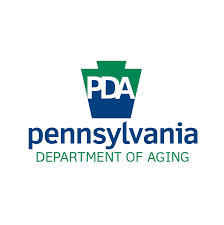Harrisburg, PA – The Pennsylvania Department of Aging is highlighting the work of the Office of the Long-Term Care Ombudsman to focus on the dignity, respect, and rights of skilled nursing facility and personal care home residents.
“Throughout the pandemic, we have been hearing from families who are concerned and frustrated over the safety of their loved ones in long-term care facilities. The residents have been facing the tremendous challenges of isolation, changes in daily routine and interacting with caregivers cloaked in personal protective gear. And it’s been tough for families not being able to fully communicate and know about what’s going on in the facilities.” said the Department of Aging’s State Long-Term Care Ombudsman Margaret Barajas. “Our ombudsmen staff and volunteers have been working diligently to connect these families and check on residents to provide peace of mind and ensure their needs are met.”
During the pandemic, the Office of LTC Ombudsman has responded to instances related and non-related to COVID-19 in personal care and nursing facilities and provided information to staff on COVID-19 and ombudsman services. The office also developed the Virtual Family Council, a resource for families with loved ones in long-term care facilities to connect with experts, get information and ask questions; and partnered with AARP Pennsylvania to provide communication devices to 46 long-term care facilities in 40 counties to help residents increase contact with their family and friends. The work done by the Office of Long-Term Care Ombudsman was recently recognized by Governor Wolf.
Ombudsmen are trained resident advocates who visit facilities to ensure that residents and their families are being heard, that they are informed of their rights under state and federal law, and to assure residents are receiving the quality care they need and deserve. Pennsylvania Empowered Expert Residents (PEERs) are also trained advocates who, because they live within a long-term care community, are experts in making recommendations on improving the living conditions within their own homes and facilities. The PEER program is the only one of its kind in the country. CO-PEERs launched late last year after one of the Colorado regional ombudsmen came to Pennsylvania for certification as a PEER Trainer.
“As we have seen since March, the advocacy by the Office of the Long-Term Care Ombudsman, though limited by the pandemic, has been beneficial for long-term care residents and their families. Ombudsmen and PEERs have been providing helpful, caring support along with resources to help both sides stay connected and ensured the residents’ health and safety are top priorities,” Secretary of Aging Robert Torres said. “I commend the staff and volunteers for their continued support and dedication in working with long-term care facilities, the residents and their families during these times.”
A resident’s long-term care experience should include quality in all aspects — care, life, services, and choices, and one of the most crucial roles for ombudsmen is educating residents about what their rights are. They include, but are not limited to, the right to:
- be fully informed
- bring forth complaints or concerns without reprisal
- participate in their own care
- privacy and confidentiality
- dignity, respect, and freedom
- visits
- make independent choices
- safe transfer or discharge
The role of ombudsmen in long-term care settings is crucial in assuring that seniors and individuals with disabilities are advocated for and understand what they are entitled to. Under the federal Older Americans Act, all states have a Long-Term Care Ombudsman Office to address complaints and advocate for improvements as needed.
Learn more about Pennsylvania’s Ombudsman Services here.
Learn about volunteer opportunities with Pennsylvania’s Ombudsman Office here.


